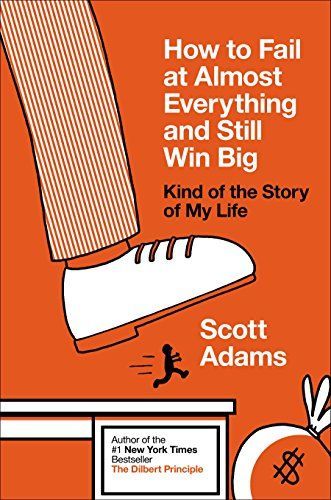
How to Fail at Almost Everything and Still Win Big Kind of the Story of My Life
The creator of the popular Dilbert comic strip presents a lighthearted memoir of what his failures have taught him about success, recounting his journey from a hapless office employee to a world-famous cartoonist while describing the career and monetary setbacks that led to counter-intuitive realizations.
Reviews
Julian Paul@julianpaul
Timeo Williams@timeowilliams
Sarah Schumacher@smschumacher
Mark Gibaud@markgibaud
Keven Wang@kevenwang
Colin@saeculara
John Elbing@palebluedot
Cams Campbell@cams
Cindy Lieberman@chicindy
Ivaylo Durmonski@durmonski
Ilia Markov@ilia
𝒕𝒉𝒐𝒎@thom
YuCheng Kuo@yuchengkuo
Alejandra RG@alerog
Manuel Steinberg@manuelsteinberg
Christian Bager Bach Houmann@cbbh
Vivian Lin@vivianlin
Taylor Murphy@tayloramurphy
John Manoogian III@jm3
Chris Jennings@ckj
Kolle@brokkoli
Gabriel Ayuso@gabrielayuso
Sergei Khudovekov@khudovekov
Kevin S.@kevoo